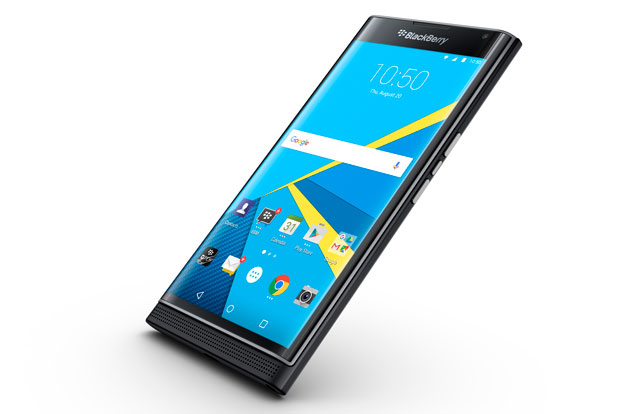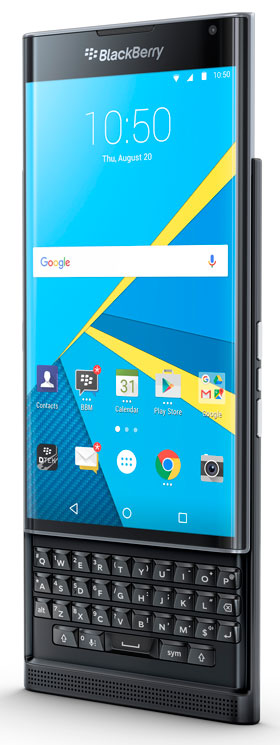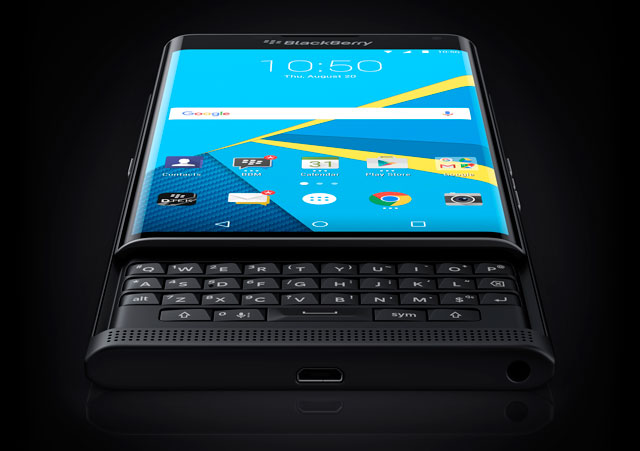
The unthinkable has happened. BlackBerry, which has always developed phones that run its own operating system software, has released its first smartphone running Android.
And if the reviews are to be believed, the device, called the Priv — which goes on sale in South Africa tomorrow – is the best thing BlackBerry has done in years and could even change sentiment about the troubled company’s long-term prospects.
Two things are remarkable about the Priv.
First, it’s BlackBerry’s new flagship device and it’s running Android. That it chose Google’s operating system (OS) for a flagship suggests a marked shift in strategy and an admission, perhaps, that BlackBerry 10, its own platform which was developed at considerable cost, has not gained the market traction necessary to attract a mass audience.

Second, it shows that BlackBerry, despite the turmoil it’s been through in recent years, can still innovate. Features on the Priv, including its slide-out Qwerty keyboard, make the phone stand out in a world of smartphone flagships that all look more or less the same. The keyboard even has a capacitive-touch surface, allowing users to swipe a finger from right to left across the keys, for example, to delete a word.
BlackBerry global director for device portfolio planning Gareth Hurn says the company hopes to attract BlackBerry users who defected to Apple’s iPhone and to Android alternatives back to the fold.
But it’s also hoping to get first-time BlackBerry users to take a chance with the brand. “We have an opportunity in this space to target uncompromising smartphone users,” he says. “This is something that is genuinely different in the marketplace.”
Hurn says the majority of people buying the Priv are coming from Android and the iPhone. “Android is a massive opportunity for BlackBerry, especially given that 80% of the world’s smartphones run Android.”
But long-time BlackBerry users will appreciate the phone’s physical keyboard as well as additions that the company has made to Android, including a privacy centre called DTEK to help consumers protect their information and secure their devices, as well as the Hub, borrowed from BlackBerry 10, where they can group all of their incoming messages and notifications.
The hardware in the Priv is impressive, too. With a giant, curved-edge, 5,43-inch, quad-HD OLED display (supplied by Samsung) and a high-end, 18-megapixel camera with dual-LED flash, the phone is aimed squarely at the top end of the market, which is dominated by the likes of Apple’s iPhone 6s Plus and Samsung’s Galaxy S6 Edge. Its price tag is similarly premium.
The intriguing question is what the Priv means for BlackBerry’s OS strategy. Hurn won’t be drawn beyond saying: “We are committed to BlackBerry 10. It still has a loyal following. But our biggest opportunity is in other platforms, where most of the volume is today.”
World Wide Worx MD Arthur Goldstuck says the Priv “probably marks the end of the BlackBerry OS, although the legacy of the OS will live on in BlackBerry-specific features like the Hub, the notifications ‘splat’ and the heightened security underpinning it all”.

“The reality is that the OS itself has become largely irrelevant in a world dominated by use of Android and blanket awareness of iOS and Windows, and had in fact become a liability,” Goldstuck says. “For a BlackBerry handset to survive in an era where it couldn’t compete on marketing spend, it had to embrace Android.”
In South Africa, there is still a deep affection for the BlackBerry brand, though this has not been returned with enough fervour by the company, he adds.
We are committed to BlackBerry 10. It still has a loyal following
“BlackBerry is so focused on the software side of things that it has almost lost touch with the marketing realities of a connected world. Samsung’s global dominance was helped along in part by its ability to launch new devices almost simultaneously across the globe. Apple doesn’t quite manage that, but it comes close. BlackBerry is able to create tremendous hype around new devices at the time of launch, but that hype has dissipated by the time the devices have trickled down to all markets,” Goldstuck says.
“As a result, devices seem old by the time they land. Local BlackBerry fans, in particular, would have been reading reviews of the Priv since November last year, and by now may have felt they had been forgotten. While the device was launched too close to the holiday season to make a launch here feasible at the time, this kind of delayed gratification has become something of a regular occurrence since the first BlackBerry 10 device was unveiled in January 2013.”
- This piece was first published in the Sunday Times




